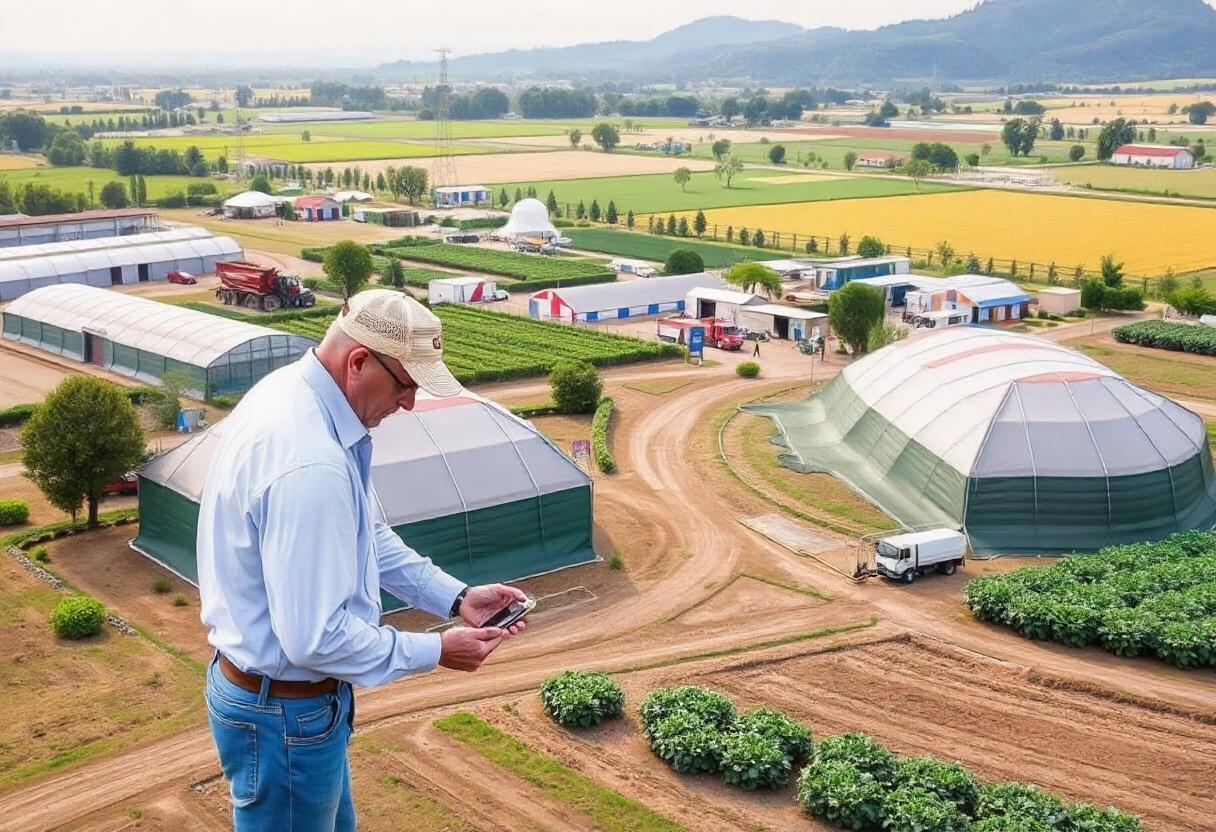
Innovation in Agricultural Practices
Agriculture companies are at the forefront of transforming traditional farming methods. By leveraging advanced technologies such as precision agriculture, these companies enhance crop yields and optimize resource use. Innovations like GPS-guided machinery and data analytics enable farmers to monitor and manage their fields with unprecedented accuracy. These advancements not only increase productivity but also promote sustainable farming practices by minimizing waste and reducing environmental impact.
Sustainable Farming Solutions
Sustainability is a core focus for many agriculture companies. They are developing and implementing practices that reduce the ecological footprint of farming. Techniques such as crop rotation, reduced tillage, and organic farming are becoming more prevalent. Additionally, companies are investing in renewable energy sources and water-saving technologies to further their sustainability goals. These practices help preserve soil health, conserve water, and maintain biodiversity, aligning agricultural practices with environmental stewardship.
Biotechnology and Genetic Engineering
Biotechnology plays a crucial role in modern agriculture. Agriculture companies are at the cutting edge of genetic engineering, developing genetically modified organisms (GMOs) that offer resistance to pests, diseases, and harsh environmental conditions. These biotechnological advancements lead to higher crop yields and reduced dependency on chemical inputs. Companies are also working on biofortification, enhancing the nutritional content of crops to address global food security and health challenges.
Automation and Robotics
The integration of automation and robotics in agriculture is revolutionizing the industry. Companies are deploying robotic systems for tasks such as planting, weeding, and harvesting. These technologies reduce the need for manual labor and increase operational efficiency. Automation also allows for precise application of fertilizers and pesticides, minimizing waste and improving crop management. As robotics continue to advance, they are expected to play an even more significant role in shaping the future of farming.
Market Trends and Economic Impact
Agriculture companies significantly influence market trends and the global economy. The rise of agribusinesses has led to increased consolidation within the industry, impacting small and medium-sized farms. These companies drive innovation and competition, shaping supply chains and influencing commodity prices. Their practices and policies also have broader economic implications, affecting everything from local economies to international trade dynamics.
Global Reach and International Collaboration
Agriculture companies often operate on a global scale, collaborating with international partners to address global food security and agricultural challenges. These companies engage in cross-border research, share best practices, and develop joint ventures to tackle issues such as climate change and resource scarcity. Their global reach allows for the exchange of knowledge and technology, fostering innovation and improving agricultural practices worldwide.
Challenges and Future Directions
Despite their advancements, agriculture companies face numerous challenges. Issues such as climate change, resource depletion, and regulatory pressures require ongoing adaptation and innovation. Companies are exploring new strategies and technologies to address these challenges, including climate-resilient crops and sustainable supply chain management. The future of agriculture will likely involve a continued emphasis on technological innovation and environmental responsibility as companies navigate these complex issues.